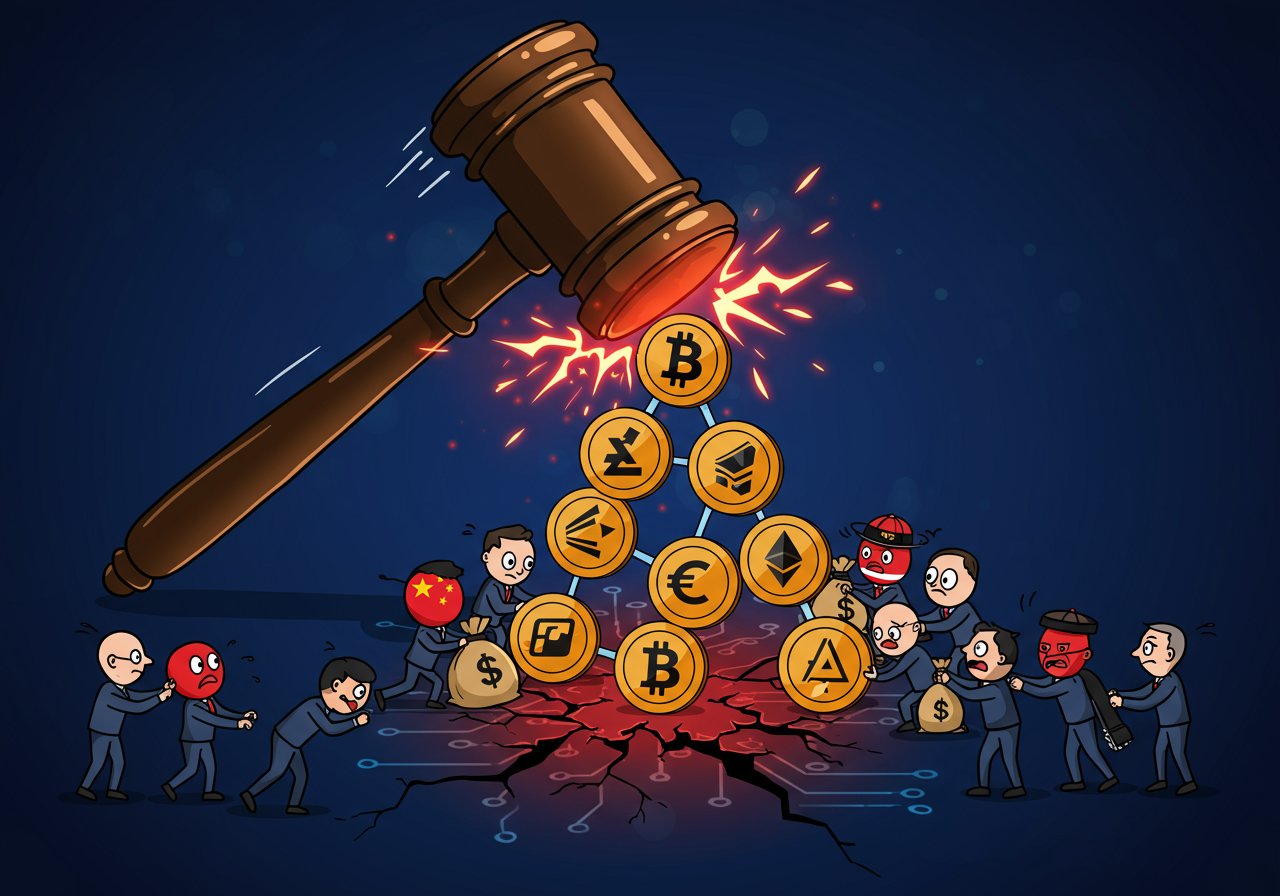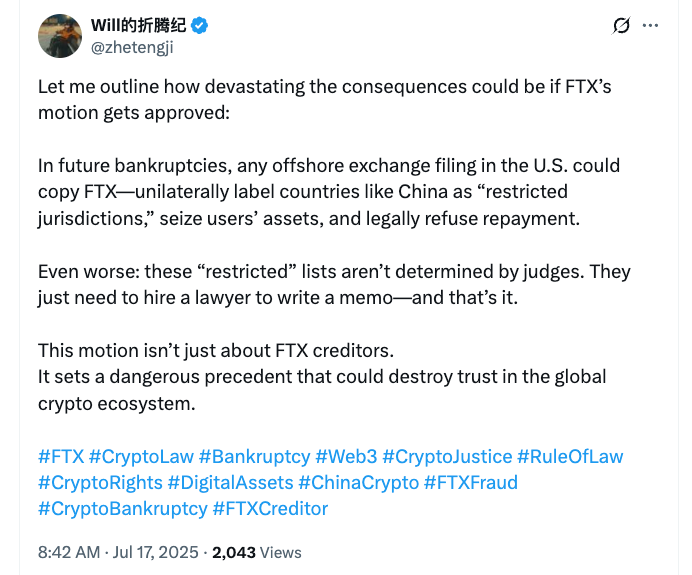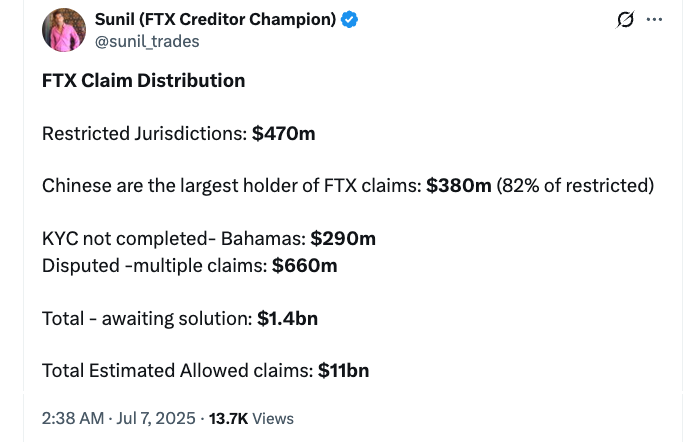
The Looming FTX Ruling: A Global Ripple Effect
The crypto world is bracing itself for a potentially seismic shift in the landscape of digital asset bankruptcies. A forthcoming ruling in the FTX case, specifically regarding the distribution of funds to creditors, has sparked significant concern, particularly amongst those from “restricted jurisdictions,” notably China. The outcome of this court decision could establish a precedent that reverberates far beyond the immediate FTX saga, impacting the global trust in the crypto ecosystem itself.
The Core of the Matter: “Restricted Jurisdictions”
At the heart of the matter is a motion that would allow the FTX estate to withhold payouts to creditors residing in 49 countries deemed “restricted.” While the exact criteria for this designation remain opaque, the implications are stark. If approved, this motion could pave the way for future crypto bankruptcies to adopt a similar strategy, unilaterally labeling countries and potentially seizing user assets without legal recourse. The Chinese creditor community, representing a significant portion of the affected parties, is particularly vocal in its opposition.

Voices of Dissent: Creditors and Objections
Objections to the motion have poured in, with concerns ranging from unfair discrimination to the erosion of trust in the global crypto market. Weiwei Ji, a prominent FTX creditor, has highlighted the potential for this ruling to become a standard procedure, allowing exchanges to arbitrarily label countries and deny repayments. The objections from creditors in countries like China and Saudi Arabia underscore the breadth of concern, with arguments centered on the lack of legal justification and the discriminatory nature of the proposed restrictions. The Saudi Arabian objection, for example, explicitly states that the country does not prohibit crypto ownership or trading, challenging the speculative basis for denying recovery.
Market Impact and Claim Valuations
The news surrounding this motion has already triggered volatility in the market for FTX creditor claims. Reports indicate a sharp decline, in the range of 20% to 30%, in the pricing of claims originating from “restricted jurisdictions.” This suggests a growing uncertainty about the prospects of recovery for creditors in these areas. The market dynamics, with claim buyers offering what some creditors consider unfavorable prices, add another layer of complexity to the situation.
The Broader Implications: A New Era of Digital Insolvency
The FTX case serves as a pivotal moment in the evolution of crypto regulation and insolvency. As Yuriy Brisov of CryptoMap notes, legal precision is paramount when claims become a form of currency. This case, and its outcome, will undoubtedly shape how future digital asset bankruptcies are handled. The decision will affect not only the current FTX creditors but could create a global framework that impacts crypto users and the entire industry.
- The ruling could establish a framework for how future digital asset bankruptcies are handled.
- It could potentially allow exchanges to arbitrarily label countries and deny repayments.
- The decision will affect not only the current FTX creditors but could create a global framework that impacts crypto users and the entire industry.
The upcoming court decision is more than just a procedural matter; it is a pivotal event that could redefine the parameters of trust, fairness, and accountability within the crypto world. The entire crypto community, therefore, awaits the ruling with great anticipation, and, for many, a sense of trepidation.




